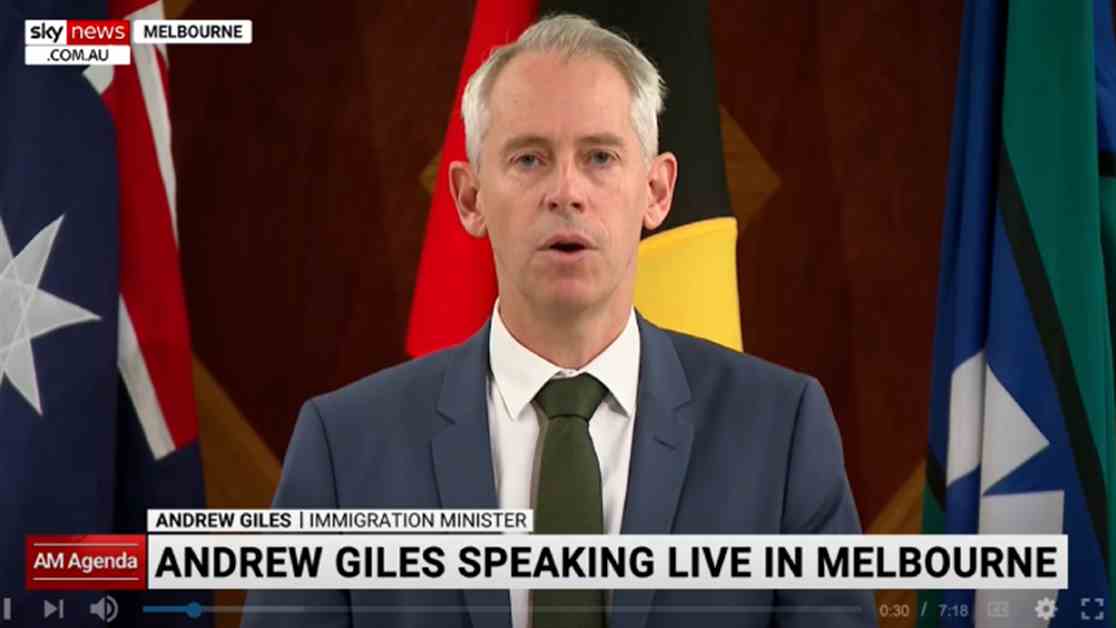Andrew Giles recently announced an increase in the deportation of noncitizens, a move that has drawn attention to the toll that such a role can take on politicians. Previous immigration ministers like Philip Ruddock and Scott Morrison have experienced the physical and emotional strain of overseeing deportations, with some appearing visibly affected by the demands of the job.
Giles initially had a relatively easy start in his role, following a period where over 7,000 noncitizens were deported by the Coalition government. However, his recent decision to reverse some of last year’s reforms has sparked controversy, particularly in terms of the treatment of long-term residents and noncitizens.
The signing of Direction 110 by Giles on June 7 highlights the government’s focus on refusing and cancelling visas on character grounds to ensure community safety. The direction relates to section 501 of the Migration Act, which outlines criteria for the automatic deportation of noncitizens based on criminal convictions.
One significant impact of recent deportation policies has been the removal of thousands of New Zealand-born long-term residents from Australia, leading to disruptions in local communities and families being torn apart. Despite concerns raised by New Zealand’s Prime Minister Jacinda Ardern, previous administrations have been reluctant to address the humanitarian implications of mass deportations.
Changes in ministerial directions, such as Direction 90 signed by Andrew Hawke in 2021, have introduced additional considerations when deciding on deportations, including family violence and ties to Australia. However, the prioritization of community safety remains a key focus in deportation decisions, as highlighted in Giles’ recent announcement.
While Giles’ new direction may not result in significant changes to deportation practices, it underscores the government’s commitment to protecting the Australian community and addressing issues like family violence. The ongoing debate surrounding deportation policies reflects the complex challenges faced by policymakers in balancing national security with human rights concerns.









